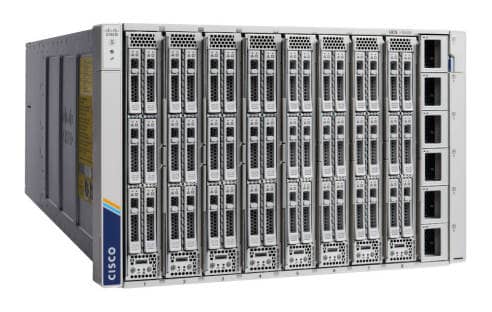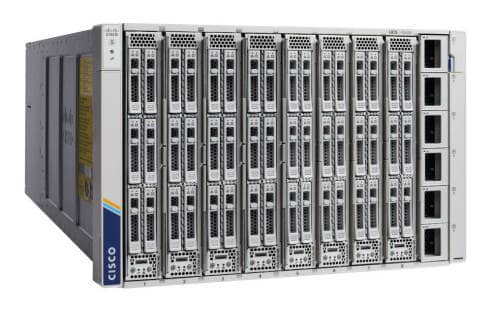Cisco recently introduced new UCS-X series servers. These have a new architecture that combines blade and rack servers, as well as management software to integrate hybrid cloud environments. […]

Cisco has expanded the Unified Computing System (UCS) to a new class of servers that should be more flexible and equipped with management software designed for hybrid clouds.
According to the network specialist, the UCS-X series is the largest remodel since the launch of UCS in 2009. In essence, the UCS-X can now combine blade and rack servers in the same chassis. Older UCS chassis were either blade systems for energy efficiency or rack systems for expandability.
UCS-X servers must also be able to handle a wide range of tasks, from virtual workloads, traditional company applications, and databases, to private cloud applications. In terms of network technology, individual modules are connected to form a fabric that can support IP networks, Fiber Channel SAN (Storage Area Network) and communication for administrative purposes.
UCS-X should also be able to integrate third-party devices, including volumes from NetApp, Pure Storage, and Hitachi.
Orchestral cloud management software
The X series isn’t just about hardware. It comes with a suite of new software, including Cisco Intersight Cloud Orchestrator, that can be used to simplify complex workflows. Additionally, the Intersight Cloud Orchestrator workflow designer can be used to create and automate workflows using a drag-and-drop interface. Furthermore, the Intersight Workload Engine provides a level of abstraction on Cisco devices with which to implement virtualized container-based workloads running directly on the server.
Finally, Cisco introduced the Service Network Manager. This is an extension of the Intersight Kubernetes service, in which Kubernetes containers can be installed and managed in hybrid cloud environments.
“Thanks to today’s announcements, Cisco makes it possible to operate and manage highly complex hybrid IT environments more easily. Companies can now implement their cloud strategy more easily – no matter where they are located and no matter what provider they want,” says Christoph Koch, chief technology officer at Cisco Switzerland.






